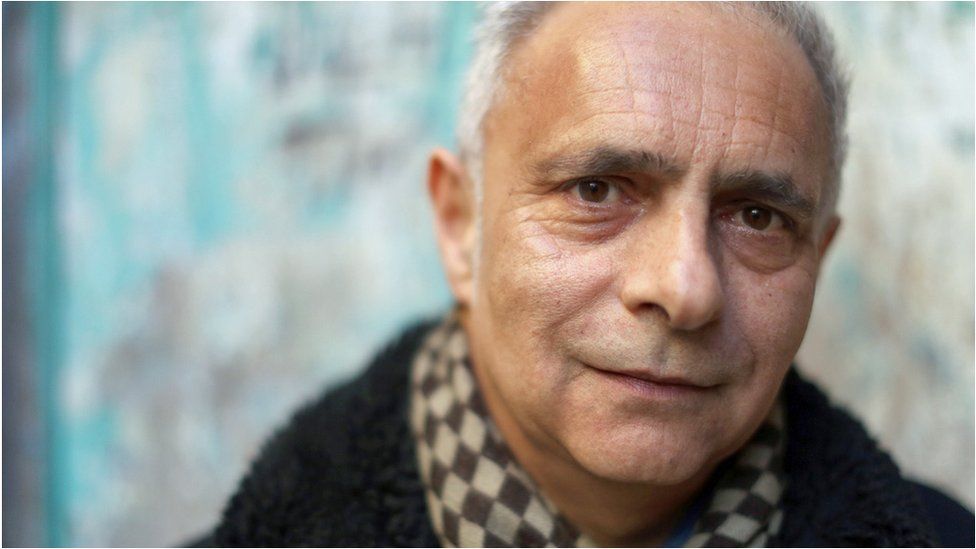ARTICLE AD BOX
 Image source, Getty Images
Image source, Getty Images
Hanif Kureishi sustained life-changing injuries when he collapsed and landed on his head in December 2022
For novelist Hanif Kureshi, growing up in the 1970s was all about hope and optimism - feelings well documented in his semi-autobiographical novel the The Buddha of Suburbia.
Now, over 30 years after the publication of his book, The Buddha of Suburbia is being adapted for the stage and Kureshi, along with theatre director Emma Rice, have been reflecting on one of the book's main themes.
"There was a sense that you could do anything or be anyone," Kureshi, 69, tells the BBC as he thinks about his own childhood. "The racism was definitely more overt than it is today, but there was still a terrific sense of optimism - in fact it was the last age where people were hopeful of the future."
Kureshi first shot to fame in 1985 when his screenplay My Beautiful Laundrette - about the relationship between a British Pakistani boy and his white boyfriend - was nominated for both a Bafta and an Oscar.
Thinking about how different his childhood was to that of his sons, he says it is "sad that young people have no hope anymore".
"Hope isn't an empty dream, it means there is a possibility in the world that what you want can happen, and my kids don't think they will ever be able to buy a house or find lucrative work," he explains.
People's desperation for hope is what prompted Emma Rice to bring The Buddha of Suburbia to the stage. "Our show gives people that hope, it shows them that we can all live together and be happy."
The Buddha of Suburbia is set in the 1970s and tells the story of 17-year-old Karim who, against the backdrop of the winter of discontent, is desperate to escape the suburbs and immerse himself in the exciting opportunities that London presents.
Image source, Steve Tanner
Image caption,The Buddha of Suburbia is a semi-autobiographical account of Kureshi's own life
First released in 1990 it won the Whitbread book of the year award and was turned into a four-part television series by the BBC three years later.
It is now being produced for the stage by the Royal Shakespeare Company and Wise Children, and will run in Stratford-upon-Avon for six weeks.
For Rice, the show is all about the "heart-breaking and joyful exploration of family, friends, sex, theatre and, ultimately, belonging".
It's also a "celebration of the 1970s, particularly the music and fashion", so the setting has not been modernised.
'I don't care to be relevant'
Keeping the original music, fashion and setting of a story set many decades ago can sometimes come with the risk of it feeling dated.
Last year, a film version of Judy Blume's classic novel Are You There God? It's Me, Margaret was released.
Originally published in the 1970s, the story, which follows a pre-teen who is anxious about puberty and adulthood, was met with mixed reviews - a three star review by Peter Bradshaw in The Guardian said it "does feel a little out of date" and is "played as a 1970 historical piece rather than being updated to the modern world".
But neither Kureshi or Rice are worried about the relevance of the play.
"I'm not interested in being relevant," Kureshi says defiantly, but acknowledges that inadvertently the story does still have a cultural relevance to audiences today and is likely to appeal to young people.
Image source, Steve Tanner
Image caption,Rice says that music and the feelings it can evoke is a vital part of the play
"There's always been a struggle to get theatre out of the middle class ghetto, but I really think young people will be interested in understanding how our society got to where we are today," Kureshi says. "And we have to remember that the 1970s were a turning point in British post war history - it shows the roots and beginnings of things we are living in now like immigration and fragmented families."
Rice, who was previously artistic director of Shakespeare's Globe, explains that there are also a lot of political parallels between the 1970s and now.
"Just like in 1979, we are on the edge of a general election and are potentially on the brink of massive change," she says, while Kureshi adds that he feels the country is in a "more desperate and worse state now that in the 1970s".
Kureshi and Rice have been working on this play together for a number of months, and for Kureshi, it's particularly special.
The novelist sustained life-changing injuries when he collapsed and landed on his head on Boxing Day in 2022.
Left without the use of his arms and legs, Kureshi has been treated in five hospitals and this is the the award-winning writer's first big project.
The pair speak almost daily, but because of Kureshi's condition he is unable to attend rehearsals or performances in person so he watches them via a live stream.
"I'm happy for her to take my book and do with it what she wants," Kureshi says about Rice. "But I have warned her not to mess it up," he adds jokingly.
Rice, 57, who tells Kureshi that he is her "hero", says that what is lovely about their working relationship is "that the long web of human friendships that the book explores, really does continue into real life".
Image source, Getty Images
Image caption,Emma Rice says people are desperate for some hope and that's what her play provides
Talking about his condition, Kureshi does not sugar-coat the reality of what he is going through.
"The suffering is absolutely immense and it never ends, but there have been some advantages of this trauma," Kureshi tells the BBC.
The most positive thing to come from his fall is his more profound relationship with his sons.
"I've started writing in a new way - I dictate sentences to my sons and then we rewrite them together," he explains.
Kureshi, who is working on a new book about his fall and its aftermath, says he never thought he could write with someone else, but he's had to adapt.
"The best thing is that I now get to see my sons every day - before we all led separate lives and would meet every now and again for a beer.
"Now our collaboration has an intensity to it, when you are writing you are raw and exposed and both me and my sons have had to get used to that.
"We are learning more about each other every day."
Despite the devastating physical and emotional impact of his accident, it seems that some of the optimism and hope that his protagonist Karim feels, is starting to rub off on him.
"Emma and I talk about how lucky we feel - lucky to be doing this show together and also lucky to be here on this planet".

 1 year ago
61
1 year ago
61








 English (US) ·
English (US) ·